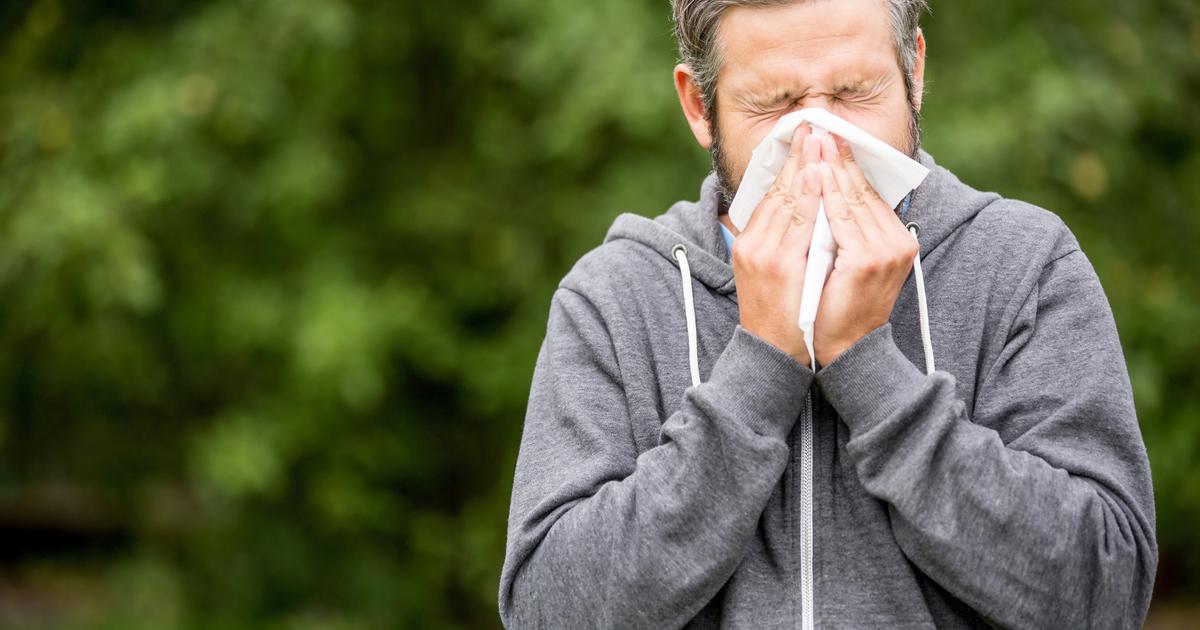Spring is here and, with it, the beginnings of the famous “hay fever” which now bothers one in four French people.
Runny nose, itchy eyes, disturbed sleep: when allergic rhinitis and its inconveniences descend on us, the temptation is great to change antihistamines because the anti-allergy medication is slow to act or does not react as well as the previous years.
But this is not useful, insists Professor Annick Barbaud, head of the allergology and dermatology department at Tenon hospital in Paris (AP-HP).
“When an antihistamine works on a patient we do not change it: resistance to an antihistamine arriving over time in a patient has never been scientifically demonstrated
,” she explains.
Same thing for long-term adverse effects:
“I have patients who have been taking four tablets a day for 15 years and who have no side effects,”
illustrates the allergist.
On the contrary, it is recommended to take the treatment every day during the entire period when contact with the allergen is possible.
Also read: Pollen allergies: what to do to protect yourself?
Histamine is a molecule naturally released by the human body during an infection.
It promotes inflammation for better healing.
In the event of an allergy, the body, upon contact with an allergen (a grain of pollen for example), believes that it is being attacked by a virus or bacteria and releases the molecule in too large a quantity.
As their name suggests, antihistamines limit the release of histamine or its effects by certain white blood cells, mast cells.
Sometimes antihistamines respond less well from one year to the next.
In the first moments of an allergic attack on pollen and after consulting a doctor, it is then possible to increase your dose of second generation antihistamine (such as desloratadine or cetirizine).
However, this is not possible with certain anticholinergic antihistamines which modify the heart rate (such as mequitazine).
Anticipate crisis periods
But even before these attacks appear, certain good reflexes make it possible to maximize the effects of the treatment.
First reflex to cultivate: “Do not wait for the signs of allergy to take your antihistamine by anticipating allergic periods,” indicates Professor Annick Barbaud.
Indeed, if the allergic reaction begins before taking the tablets, cascading events can occur, intensifying the symptoms.
During an allergic reaction, the nasal mucous membranes and throat are inflamed, which facilitates the entry of viruses and also facilitates new allergies to pollens to which we were not previously sensitive.
Other behaviors to adopt to promote the action of antihistamines: “Do not smoke because it irritates the mucous membranes, and eliminate contact with pollen as much as possible,” continues the allergist.
Certain small everyday actions can help on this last point, such as washing your hair every evening during sensitive periods to avoid getting allergens on the pillow, washing your nose with physiological serum (avoid tap water and sea water, not suitable for the nasal mucosa).
Finally, “steroid sprays to inject into the nose work very well.
Some patients only use this medication,” says Professor Barbaud.
Know your allergens and their season
You still need to know when to start treatment.
To do this, the patient must know both the species of pollen to which they are sensitive and the periods when these allergens are present in the air.
To identify the nature of your allergy, go to the allergist, preferably at the start of the school year in September, a calmer period for pollen during which the patient will no longer take antihistamines.
The doctor will suggest quick and painless skin tests (prick tests).
After knowing the pollens to which he reacts, the patient will need to find out about the pollination periods of his allergens.
The National Aerobiological Surveillance Network (RNSA) offers a lot of useful information on its site, in particular a map of France of allergic risk according to different categories of pollen, updated every week.
Anticipation is key.
“If you are allergic to grass pollen whose period is between the end of April and mid-August, you must start treatment in mid-April,” insists Annick Barbaud.

